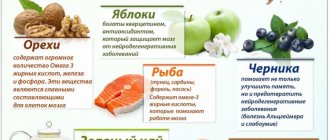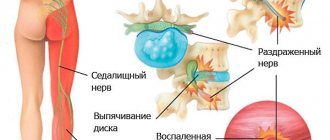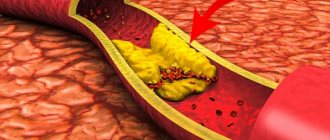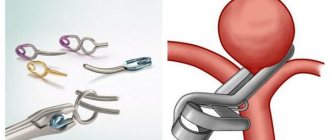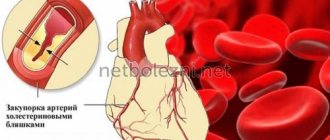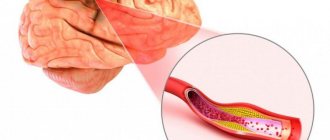Have questions?
Just write to our manager and they will answer you right away!
Online consultation
Want to know more?
Leave your email and we will send you additional information
I would, of course, like to start with something encouraging, but no, the statistics do not: according to their data, the most common cause of death is diseases of the cardiovascular system.
Such disappointing information comes not from anyone, but from the World Health Organization, which all the more makes you think seriously and take yourself and your health into your hands. Moreover, this needs to be done as soon as possible, since this group of diseases now appears not only in older people, but also in young people and even in those who live in rural areas.
About healthy and diseased vessels
Healthy vessels are elastic, they respond to changes in the intensity of blood flow and, if necessary, expand or contract. If the vessels remain narrowed, then all other organs and tissues will receive less blood than needed, and, consequently, their nutrition will be disrupted. Also for this reason, the pressure “jumps”, since its normalization depends on the elasticity of the arteries and veins.
In addition to elasticity, the smoothness of the vascular walls is very important. If cholesterol plaques appear on the walls, blood flow will be disrupted, blood clots and other very serious consequences will appear.
Everyone probably knows about the consequences. These include:
- cardiac ischemia;
- cerebrovascular diseases;
- diseases of peripheral arteries (supplying blood to the legs and arms);
- rheumatic heart disease;
- thrombosis (threatens further pulmonary embolism);
- heart attacks;
- strokes.
Products for vascular health
There are many studies proving that vascular health directly depends on a person’s lifestyle, and specifically on nutrition. Regular consumption of foods harmful to blood vessels: fatty meat and dairy products, smoked meats, sausages, low-quality confectionery products, processed foods and fast food sooner or later guarantees a decrease in the lumen of the arteries and blockage of the veins. Below are the most beneficial foods for vascular health.
- Lemon
— vitamin C, essential oils, antioxidants are necessary for both sick and healthy people. Cardiologists advise using lemon constantly, and healing the heart with drugs based on it, since citrus not only provides vitamins, but also: reduces the content of “bad” cholesterol in the blood; removes toxins; dissolves old cholesterol deposits. Lemon is a product that increases the elasticity and overall tone of blood vessels and veins of the lower extremities.
- Beet
– this vegetable is traditionally considered one of the most necessary in the menu of patients with atherosclerosis. In raw and boiled form: beets cleanse arteries and are used to strengthen and improve the condition of blood vessels and blood composition; the product helps reduce blood pressure; helps reduce swelling and reduce excess weight; It strengthens the heart muscle well, as it contains many minerals it needs.
- Pumpkin
- recommended for vascular and heart health in any form. It is baked, stewed, boiled, and eaten raw in salads. Pumpkin juice, which is mixed with fruits and other vegetables, is also very useful. Pumpkin is famous for: reducing the amount of cholesterol in the blood; helps remove toxins and prevents clogging of blood vessels; helps reduce excess weight; The vitamin and mineral composition, as well as other beneficial substances in the seeds and pulp, strengthen and nourish the heart muscle. There are practically no contraindications for use, with the exception of individual intolerance, which is rare, since pumpkin is considered a hypoallergenic product.
- Garlic
– improves the taste of dishes and treats the cardiovascular system. It has its healing effect both when added to food as a seasoning and as part of traditional medicine: it lowers blood pressure and normalizes blood sugar levels; prevents blood cells from sticking together, thereby preventing blood clots from forming; garlic dissolves cholesterol plaques on the walls of blood vessels. Since garlic is a product that strengthens the heart, it is used even after a heart attack, but not immediately and is introduced into the diet gradually. Garlic is especially effective when combined with lemon.
- Ginger
— thanks to minerals, vitamins, essential oils and amino acids, ginger is interesting for heart patients and healthy people. It can replace many chemical drugs, since ginger strengthens the heart muscle and is a good prevention of its thinning; relieves spasms of cerebral vessels; thins the blood no worse than aspirin, thereby preventing the formation of blood clots; is a natural antioxidant - has a rejuvenating effect on the entire body; cleans blood vessels from fatty deposits; Useful for both high and low blood pressure. The product has restorative properties for vascular diseases.
- Chilli
– studies have shown that capsaicin, contained in chili peppers, works effectively in two directions - on the one hand, it reduces the level of “bad cholesterol”, while not affecting the level of “good” cholesterol, it fights cholesterol plaques: it prevents the clogging of blood vessels with fat and breaks down already formed clots so that blood can circulate freely.
On the other hand, capsaicin inhibits the activity of the gene responsible for the production of a substance called cyclooxygenase-2. Every person normally has this substance, but heart patients and hypertensive patients have more of it than they need. The danger is that cyclooxygenase-2 causes small muscles located around blood vessels to contract. And this interferes with normal blood supply and provokes surges in blood pressure.
- Cranberry
– this is not just a natural concentrate of vitamins and minerals. The anti-inflammatory, antioxidant properties of this berry save blood vessels from many problems: they reduce the level of “bad” cholesterol and increase the level of “good” cholesterol in the blood, thin the blood, protecting against stroke, cranberries strengthen the heart muscle and the walls of arteries and veins.
- Green tea
— tea made from unfermented green leaves is considered one of the most beneficial drinks for blood vessels. Green tea helps reduce cholesterol levels in the blood and gently cleanses the walls of arteries with long-term consumption. Of course, it is important to understand that the caffeine contained in tea can increase blood pressure, so you should not drink more than 2 cups of green tea per day.
- Nuts
— the concentration of nutrients in nuts is high. Therefore, nuts are necessary for the heart and blood vessels, which need plant protein, minerals, vitamins, amino acids, which are found in abundance in nuts. Nuts nourish the heart muscle and help the walls of veins, capillaries and arteries remain elastic and strong. Preference is given to walnuts, hazelnuts, and macadamia.
- Linseed oil
— a prerequisite for the use of this oil is its freshness: when the container is opened, the product begins to quickly oxidize, acquires an unpleasant taste and smell and loses its beneficial properties. For blood vessels and the heart, flaxseed oil is good because: flaxseed oil reduces the level of “bad” cholesterol and glucose in the blood, prevents the formation of blood clots in the veins, makes the walls of blood vessels impenetrable and elastic, which helps to avoid pressure surges. Fans of flaxseed oil add it to fresh salads.
- Olive oil
— unsaturated fatty acids of olive oil are very useful for both the treatment of atherosclerosis and its prevention. Olive oil prevents the formation of blood clots, which means it prevents myocardial infarction and reduces the likelihood of stroke. It is taken on a spoon on an empty stomach and added to vegetable salads.
- horse chestnut
- Everyone who has problems with veins in their legs has probably heard about this tree. Medicinal ointments against varicose veins, thrombophlebitis, edema and hematomas are made from the flowers, leaves and fruits of horse chestnut. The active ingredients of horse chestnut - esculin and escin - have a beneficial effect on blood vessels: they accelerate venous blood flow, fight capillary fragility, prevent the formation of blood clots, reduce swelling in the legs, stimulate the production of antithrombin - a substance responsible for the natural protection of blood vessels from thrombophlebitis.
We recommend
“Vitamins for skin and hair: content in food and how to take them correctly” Read more
We recommend
“Nutrition for diarrhea: top 10 foods to help” Read more
What causes vascular disease and how to avoid it
In fact, there are quite a few reasons: excess weight, bad habits, a sedentary lifestyle, poor nutrition, and excessive stress on the body. But I would like to pay special attention to nutrition, because those people who do not have the necessary minerals and vitamins for blood vessels in their diet most often suffer from various diseases.
In order to avoid the appearance of many of the ailments of the cardiovascular system already listed above, it is necessary to limit the consumption of fatty foods that contain large amounts of cholesterol: eggs, fatty meats, canned food, chocolate, butter. The emphasis should be on plant foods and low-fat foods, and if necessary, resort to dietary supplements or synthetic vitamins that strengthen the walls of blood vessels.
Coenzyme Q10: benefits for blood vessels
Coenzyme Q10 contains ubiquinone, a coenzyme that has a vitamin-like effect on the body. Shows exceptional antioxidant properties and affects redox processes in cells. In the body, coenzyme Q10 is synthesized in the liver when eating foods of animal and plant origin. It is also found in some foods: lamb, beef, rabbit, trout, mackerel, sardines, spinach, eggs, soybeans, fresh fruits and vegetables.
In addition to vitamins, vascular health requires microelements as potassium, calcium, zinc, manganese, copper, and sodium.
Vitamins for cleaning and strengthening blood vessels and veins
- P is effective for fragility of blood vessels, as it strengthens their structure and reduces the permeability of the walls. Based on this vitamin, many healing gels and ointments are created that are designed to reduce pain and relieve tension.
- Group B - this vitamin strengthens the walls of blood vessels and maintains their tone. It also prevents muscle weakness and helps get rid of swelling.
- B5 - with its deficiency, muscle spasms and pain appear in the arms and legs.
- C – is responsible for maintaining the functioning of the immune system and stabilizing iron levels in the blood.
Now that you already know what vitamins are needed when blood vessels burst, weakness and swelling appear, you can consider a separate list of substances necessary for the health of brain vessels.
Types of vessels
All vessels in the human body are divided into 3 main types. Based on the diameter of the tubes and the functionality performed, there are:
- Capillaries are the smallest and thinnest conductors of blood throughout the human body; the liquid in them moves at the lowest speed. They are a functional unit designed for gas exchange between the blood and body tissues. Diseases of the walls of blood vessels bring aesthetic discomfort, causing rosacea, and cause problems with regenerative processes and metabolism.
- Veins are vessels that are responsible for delivering fluid connective tissue to the heart muscle. They make up the systemic circulation, conducting fluid containing low levels of oxygen and high levels of carbon dioxide. Decreased tone of the veins, thinning of their walls or disease cause the development of trophic ulcers or edema.
- Arteries – these conducting tubes carry blood from the heart throughout the body. A number of anatomical features make it necessary to always maintain high pressure in this type of vessel. That is why any injury or disease of the arteries can cause massive bleeding.
IMPORTANT. The elasticity of the walls of blood vessels ensures the normal functioning of all systems of the human body.
B vitamins are mainly responsible for normal cerebral circulation.
- B1 – deficiency of this vitamin is characterized by the rapid onset of fatigue, sleep disturbances and coordination of movements, depression, numbness of the arms and legs.
- B2 is necessary during increased mental and physical stress, as it is responsible for providing energy to brain cells.
- B3 is a vitamin that strengthens the blood vessels of the brain and is necessary for its normal functioning, eliminating the feeling of constant fatigue and memory problems.
- B5 – activates mental activity, memory functions and helps normalize sleep.
- B6 is responsible for the normal functioning of the entire nervous system, so it is included in almost all vitamins for veins and blood vessels.
- B9 – if it is deficient, memory functions are impaired, frequent apathy and fatigue occur, and mental abilities decrease.
- B12 - the main signs of its deficiency are: depressive states, senile dementia, increased excitability, aggressiveness, visual impairment and memory function. In order to maintain the health of the eyes and nervous system, it is necessary to consume this vitamin additionally for the period prescribed by the doctor, as well as when changing lifestyle and time zones.
Having looked at what vitamins are needed to strengthen the walls of blood vessels and the functioning of the brain, let’s now find out what minerals and fatty acids are necessary to maintain the health of the cardiovascular system:
- Copper ions of this metal are necessary for the formation of hemoglobin, which is the main protein in the blood. Copper deficiency leads to disorders of hematopoiesis, fat metabolism and phospholipid synthesis.
- Zinc – helps strengthen the walls of blood vessels in the brain and lower extremities, as well as normalize blood pressure and reduce cholesterol levels.
- Calcium – balances the nervous system and helps ensure healthy and restful sleep.
- Magnesium is responsible for regulating blood pressure, the heart rate cycle, and also reduces the sensitivity of blood vessels in the extremities.
- Omega-3 fatty acids – thanks to them, nerve impulses are transmitted from cell to cell. These polyunsaturated fats contribute to normal brain function, improved memory, and physical and mental performance.
Effective vitamins to strengthen brain vessels
Cerebrovascular accident is extremely dangerous: it can cause deterioration of vision, memory, speech impairment, and stroke . To prevent these conditions, it is necessary to include foods in the diet or take special vitamin complexes containing vitamins for the blood vessels of the brain .
What vitamins are needed by the brain ?
B vitamins improve the transmission of nerve impulses and support the function of the nervous system.
Vitamin B1 (thiamine) – improves memory, increases learning abilities. With its deficiency, rapid fatigue, depressive states occur, sleep and coordination of movements are disturbed. Large amounts of this vitamin are found in meat, fish, nuts, oatmeal, peas, and eggs.
Vitamin B2 (riboflavin ) . It is a source of energy for the brain, consumed during intellectual work, as well as during physical activity. A lack of riboflavin leads to weakness, drowsiness, lethargy, decreased appetite, and headaches. The main sources of vitamin B2 are meat and dairy products.
Vitamin B3 (nicotinic acid) heals brain vessels, improves cerebral circulation, and stimulates energy production. A lack of nicotinic acid manifests itself in increased fatigue, a constant feeling of tiredness, and memory impairment. Contained in nuts, meat products, liver, fish, eggs, buckwheat, legumes.
Vitamin B5 (pantothenic acid) is extremely important for the brain . It increases mental activity and improves the transmission of neural impulses. With a lack of this substance, constant fatigue, depression occur, memory decreases, and sleep deteriorates. Sources of pantothenic acid are cabbage, liver, milk, and buckwheat.
Vitamin B6 (pyridoxine) improves the function of the nervous system, stimulates the breakdown of excess cholesterol, prevents the formation of cholesterol plaques, including in the blood vessels of the brain, and improves cerebral circulation. Pyridoxine deficiency leads to increased anxiety, irritability, and sleep disturbances. The compound is found in legumes, grains, walnuts, liver, and bananas.
Vitamin B9 (folic acid) regulates the processes of excitation and inhibition in the nervous system, improves mental abilities. Lack of folic acid leads to fatigue, apathy, and serious memory problems. Contained in nuts, mushrooms, fresh vegetables and fruits, cereals, beef.
Vitamin B12 (cyanocobalamin) improves the cognitive abilities of the brain, normalizes sleep and wakefulness, and accelerates adaptation to changing external conditions (for example, when changing lifestyle or changing time zones). Vitamin deficiency provokes depression, increased irritability, memory and vision disorders, tinnitus, and increases the risk of senile dementia. Sources of vitamin B12 are seaweed, other seafood, poultry, and milk.
We solve the problem comprehensively
In order to prevent the occurrence of many dangerous diseases associated with disorders of the cardiovascular system, it is necessary to influence your body in a comprehensive manner:
- stop the harmful hobby of smoking and alcohol;
- change a sedentary lifestyle to an active one;
- include mandatory physical exercise in your daily routine;
- improve your diet;
- use vitamin complexes for blood vessels.
All this can have a balanced effect on the body, which will help cleanse the blood vessels and restore their elasticity and smoothness.
All these rules should especially be followed by those people who lead an unhealthy lifestyle, the elderly (over the age of 50), as well as those who have an appropriate medical diagnosis, genetic predisposition, or suffer from vegetative-vascular dystonia.
What other vitamins are needed for the brain?
To improve cerebral circulation and correct brain functioning you need:
- vitamins C, D, E, P;
- amino acids tryptophan, threonine, lysine, isoleucine, leucine, phenylalanine.
All of these vitamins are essential for healthy blood vessels . They make them stronger and more elastic, stimulate blood flow, improve memory, concentration, mental activity, normalize metabolism, regulate emotional background, prevent atherosclerotic vascular damage and the development of cardiovascular diseases. Food does not always provide sufficient amounts of these essential substances. Therefore, it is optimal to take special vitamin complexes for blood vessels .
Vision - the safest vitamin complexes for strengthening blood vessels
Of all the possible types of vitamin complexes that exist on the pharmaceutical market, Vision vascular vitamins have the most optimal characteristics for human health. You can safely include them in your individual “Program for the fight for vascular and heart health.”
And here, in fact, are their characteristics:
- they are made from environmentally friendly raw materials;
- 100% natural, absolutely safe and completely (98%) absorbed by the body.
- retain all beneficial properties thanks to the unique technology of cryogenic drying and crushing of plants - Arkopharma;
- their quality meets strict GMP and ISO22000 standards;
- each product is certified and tested by the Ministry of Health of many countries around the world;
- Methodological recommendations for their use have been developed from specialists from the Moscow Academy of Medical Sciences. DI. Sechenov
- they deserve only positive reviews from buyers and doctors in many countries that consume Vision products.
All vitamins for blood and blood vessels from Vision can be consumed without any fear for your health, since they will not cause the slightest harm to the body, will not cause an overdose and will not aggravate the disease.
